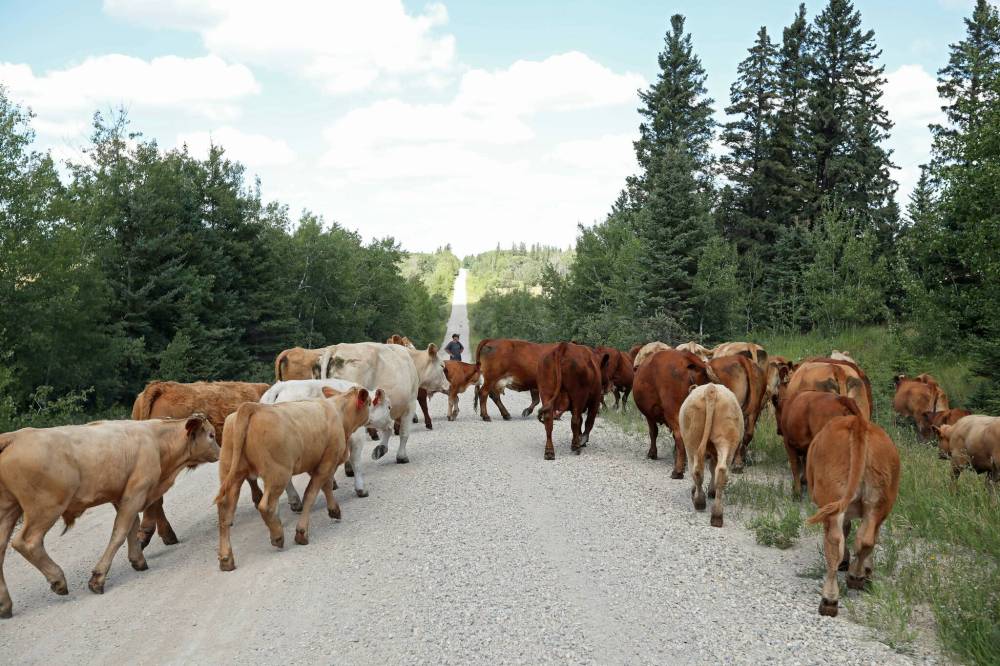A tense ag community awaits tariff announcement
Advertisement
Read this article for free:
or
Already have an account? Log in here »
We need your support!
Local journalism needs your support!
As we navigate through unprecedented times, our journalists are working harder than ever to bring you the latest local updates to keep you safe and informed.
Now, more than ever, we need your support.
Starting at $15.99 plus taxes every four weeks you can access your Brandon Sun online and full access to all content as it appears on our website.
Subscribe Nowor call circulation directly at (204) 727-0527.
Your pledge helps to ensure we provide the news that matters most to your community!
To continue reading, please subscribe:
Add Brandon Sun access to your Free Press subscription for only an additional
$1 for the first 4 weeks*
*Your next subscription payment will increase by $1.00 and you will be charged $20.00 plus GST for four weeks. After four weeks, your payment will increase to $24.00 plus GST every four weeks.
Read unlimited articles for free today:
or
Already have an account? Log in here »
Hey there, time traveller!
This article was published 18/01/2025 (338 days ago), so information in it may no longer be current.
The ag sector is rightly considered the lifeblood of Manitoba’s economy, and more broadly that of the Prairies, which is why the looming threat of U.S. tariffs being imposed on Canadian pork and beef exports next week has sparked considerable concern among Manitoba’s agricultural producers and policymakers.
With the U.S. being a crucial trading partner, particularly for Manitoba’s pork and beef industries, producers argue that any tariff imposition could have a “severe” economic impact on their operations and bottom lines.
Potential tariffs would especially pose a serious challenge to Manitoba’s pork industry, which exports over three million live pigs annually to the U.S., Manitoba Pork Council general manager Cam Dahl said.

Larry Safroniuk drives cattle into a new pasture in the RM of Clanwillian near Riding Mountain National Park. Safroniuk is a third-generation farmer who has been farming all his life. (Tim Smith/The Brandon Sun files)
“A 25 per cent tariff on live animal exports and pork could severely impact the province’s pork producers,” Dahl told the Sun on Friday.
“If those exports become significantly more expensive due to tariffs, it would lead to reductions in the number of pigs raised in Manitoba.”
He explained the U.S. is also a primary market for Manitoba’s processed pork, arguing such tariffs could shrink both the volume and value of exports.
Manitoba’s pork industry employs approximately 23,000 people, and any disruptions could jeopardize jobs and the local economy, the council general manager added.
Regarding the industry’s contingency plans, Dahl acknowledged that alternatives would be difficult to implement.
“There aren’t other alternative markets for the live animals exported to the U.S., and replacing the U.S. as a customer for pork would also be challenging,” he said.
“Efforts are underway to work with U.S. partners in states like Iowa and Minnesota to demonstrate the value of the integrated Canada-U.S. market.”
Dahl also commended the provincial government for its openness to engage in dialogue, but stressed the need for a strategic approach to engaging with American counterparts.
“Manitoba is an exporting province; we depend on trade. A systematic plan to reach out to individual states and U.S. customers is essential,” he added.
He also flagged broader concerns about rising U.S. “protectionism,” citing country-of-origin labelling as a persistent issue that could disadvantage Manitoba’s pigs.
“We’ve seen protectionism increasing for some time, even under existing legislation, which is why reaching out to our partners and customers remains a priority,” he said.
A strong integration exists within the North American cattle and beef supply chain, Manitoba Beef Producers general manager Carson Callum explained.
According to him, U.S. small- and medium-sized processors rely on Canadian cattle to thrive, while Canada depends heavily on the U.S. as an export partner.

LEFT: Manitoba Beef Producers general manager Carson Callum says U.S. small- and medium-sized food processors rely on Canadian cattle to thrive, while Canada depends heavily on the U.S. as an export partner. (Submitted)
“The U.S. and Canada have the largest two-way trade in live cattle and beef in the world,” he told the Sun.
“Tariffs would increase processing costs, lower cattle prices, and potentially create a surplus of cattle in Canada, all of which would be detrimental to the industry.”
Callum noted that no new tariffs have been announced yet, but the sector is prepared to respond if necessary.
“We have a National Beef Strategy developed by the Canadian Beef Advisors, which guides all responses to potential disruptions,” he said.
He highlighted the interdependence of the two countries, with significant numbers of Canadian cattle processed in the U.S. and returned as retail beef and U.S.-born cattle fed in Canadian feedlots before being processed south of the border.
About half of Canadian beef production is exported, with two-thirds of those exports going to the U.S. Canada’s total beef exports were valued at $7 billion in 2024, with $6 billion destined for the U.S., Callum pointed out.
He remains hopeful that the Canada-U.S.-Mexico Agreement (CUSMA), which supports free trade until 2026, will protect the industry. “Through CUSMA/USMCA, beef producers across all three countries benefit from market-based demand for our product,” he said.
The provincial government had conducted extensive economic modelling, both internally and with external expertise from the private sector, to assess the potential impact of the looming tariff, Premier Wab Kinew said when answering the Sun’s question at a press conference on Thursday.
Kinew explained the modelling considered various potential scenarios, including tariffs, and examined their effects across different sectors, such as agriculture, oil and gas, manufacturing and transportation.
“It’s not good to have a tariff war,” Kinew said.
“The only winner in a tariff war is the People’s Republic of China. There is a need for a strong and constructive relationship with the United States to ensure Canada’s economic future.”
The premier also highlighted that his government had been consulting with the agricultural industry, including sector organizations, producers and farmers.
“We’ve spoken to all those business organizations and CEOs from large employers around the province, and there’s a pretty unanimous concern about the impact of tariffs being applied by president-elect Trump,” Kinew said.

Manitoba Pork Council general manager Cam Dahl says the potential tariffs pose a serious challenge to Manitoba’s pork industry, which exports over three million live pigs annually to the U.S. (File)
“We’re going to be there to support and we’re going to have your back as Manitobans.”
Regarding collaboration with other provinces, the premier expressed unity among Canada’s premiers in facing economic threats, describing the collective response as one where Canadians come together despite political differences.
“We’re still family, even if that one cousin doesn’t show up for holiday meals,” he remarked, reinforcing the notion of solidarity.
Kinew added his government would continue to support various industries, including agriculture, oil and gas, and auto workers, against any economic threats.
“You can be damn sure that there is a strong voice for the ag sector of Manitoba, the people in the mining industry, here in Manitoba, transportation, manufacturing, finance, all of the hardworking Manitobans that we have,” he assured.
He expressed confidence that the premiers would stand together, ensuring no region or sector would be left behind in the face of economic challenges.
Kinew revealed plans for a trip to Washington, D.C., in February with other premiers to advocate for the province’s economic interests.
“We’re going to have a strong response next week as Canadians to whatever we see from the incoming administration,” he said, adding that ongoing conversations with U.S. leaders have not shown support for tariffs.
» aodutola@brandonsun.com
» X: @AbiolaOdutola
